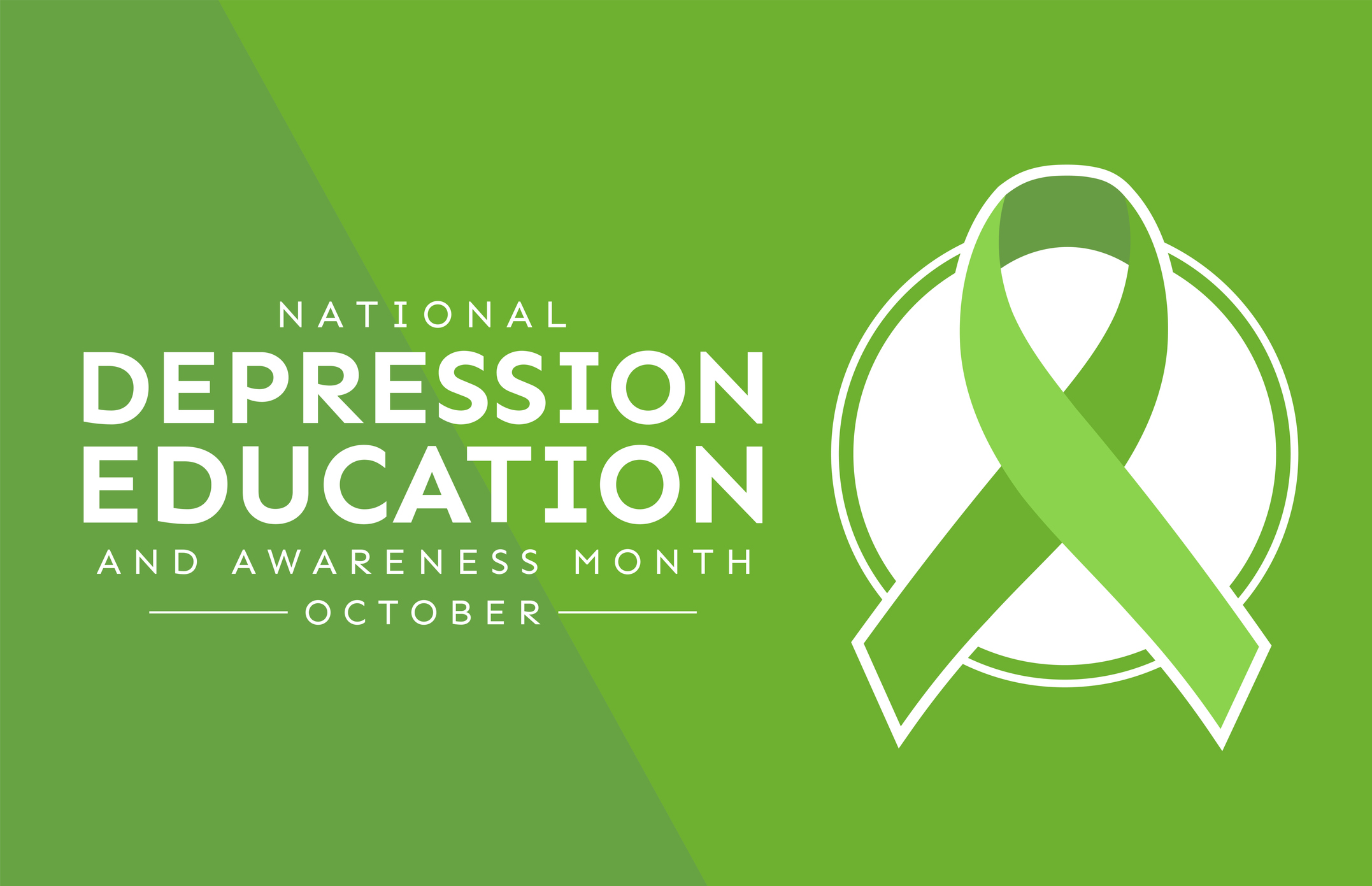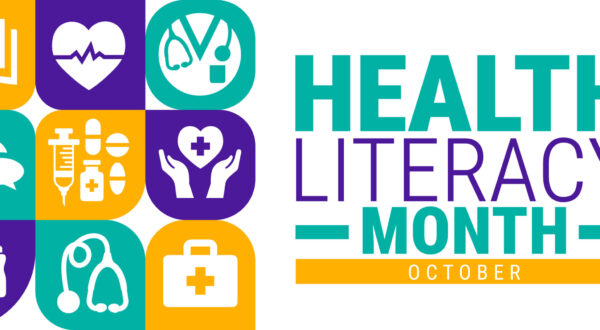National Depression Education and Awareness Month

It’s been 14 years since I was diagnosed with major depressive disorder. That’s just how long I’ve had the diagnosis, but I have suffered from depression for much longer than that. When I was a pre-teen, hopelessness, pessimism, not feeling good enough, feeling alone, and feeling secretly hated by everyone started to creep into my mind. I never would have known at the time that this would become a lifelong struggle for me.
I started believing something was wrong with me. I asked myself why I couldn’t just be normal, why couldn’t I just be happy? I thought I was just being dramatic.
My sister was diagnosed with bipolar disorder and depression at a young age. I saw how much her condition affected my family. I saw how hard my mom worked to care for her and make sure she had the help she needed. I decided I would be the “easy child” and stuff my feelings down like they didn’t exist. I thought talking about them would add to the strain on my parents, and I didn’t want to detract from the attention my sister needed. I put on a happy mask and hid from the world. This technique is called “smiling depression,” and I give it a 0 out of 5 stars, would not recommend.
When I was 15, my cousin, whom I considered my brother, gave in to his depression and died by suicide. He was only 16. I was in shock. How could someone so happy, so goofy, have been pushed to think that suicide was the answer? I realized he wore the same “smiling depression” that I did. I started debating if I should come forward to my family with how I felt, how my depression was gnawing at me. However, shortly after his death, my sister was hospitalized when her bipolar disorder and depression came to a head. Once again, I decided to swallow my feelings. We had just lost someone so dear to us, I didn’t want to steal any attention that she needed and risk losing her as well. My problems felt small and stupid compared to theirs.
Years passed, and my depression continued to fester and rot. Depression no longer felt like something I had, but something I was. I became hopeless, concluding that I was too far gone and there was no end in sight. My thoughts got darker and darker.
Meeting my husband quite literally saved my life (on more than one occasion). We started dating when I was 21. He was smart, clever, and passionate about mental health. He was too smart, too clever. In a matter of months, he saw my smile for what it was: a mask. He tried to persuade me to try therapy again and get some medication. I resisted, of course, being the stubborn person I am. I protested that I had it under control and could push through. It took a while to get through my thick head that my resistance was hurting my relationship and was hurting him, too. I finally gave in.
I started seeing therapists and joined a dialectical behavior therapy (DBT) group, which greatly improved my outlook on life and my relationships. I got on medication, which has been a cornerstone in my stability. I have tried going without my meds a few times, trying to re-adopt the “I can do it on my own” mentality, and I was almost hospitalized for it. Lesson learned!
I no longer keep my depression a guarded secret; I am no longer alone in my fight. I have an amazing network of family, friends, and doctors who are ready to support me and understand when I need space or an extra boost. My husband is highly in tune with my depression symptoms and gets me through the worst episodes with love and compassion.
I continue to battle with depression to this day. There are some days I don’t want to fight it, some days where it’s almost impossible to get out of bed. I never want to ask for help, but I realize that’s my depression talking, and it doesn’t have my best interests at heart. My support network does, though. Leaning on them does not make me weak (as my depression would have me believe); it makes me stronger.
If I can offer any advice based on my experiences, it’s this: don’t suffer in silence. You don’t need to feel ashamed about your feelings. You are not a burden and deserve to be loved. Open up to your family and friends, build a support network of loved ones, doctors, and resources to lean on when you need help.
It’s OK to take up space, it’s OK to not feel OK, it’s OK to ask for and accept help. You are important and matter to so many people.
Resources
Health First Colorado (Colorado’s Medicaid program) and Child Health Plan Plus (CHP+) offer mental health benefits. Learn more at coaccess.com/members.
988 Colorado Mental Health Line: 988colorado.com
National Alliance on Mental Illness (NAMI): nami.org
NAMI helpline: nami.org/support-education/nami-helpline
If your employer offers an Employee Assistance Program (EAP), you may be able to get free mental health support through there.


